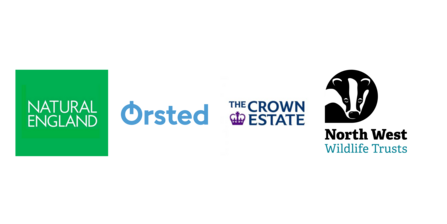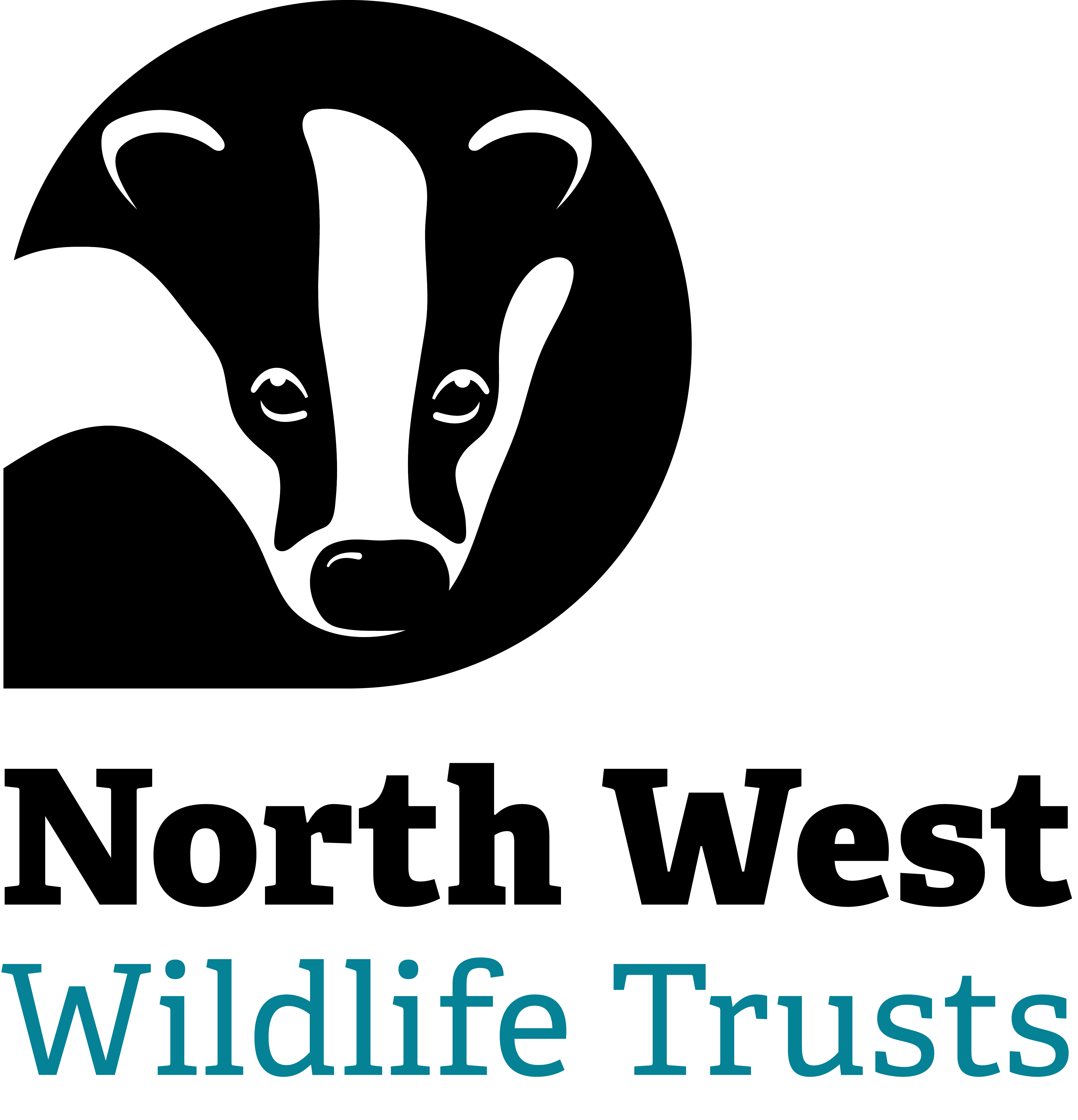"This internship was invaluable to me; I was really struggling to find entry level roles when I finished university and this internship was the ideal opportunity. It gave me the chance to work with, and for, four different partners and it really helped me figure out which direction I wanted my career to head in. I honestly don’t think I would be where I am now without the internship. "Marine Lead Adviser, Natural England
Marine Futures North West Internship 2025
Applications are now closed for the 2025 round of the Marine Futures North West Internship.
Marine Futures North West
The Marine Futures North West Internship programme offers a unique opportunity for candidates interested in a career in the marine environment to gain skills, knowledge and experience across a variety of marine sectors; helping to inform and shape future career opportunities.
Working across the North West Wildlife Trust, The Crown Estate, Natural England and Ørsted, each partner organisation provides opportunities for the intern to develop skills in specialist areas including, marine conservation advice, sustainable fisheries, renewable energy development, marine policy, and community engagement.
This internship programme is mostly based in Cumbria and project managed by the North West Wildlife Trusts.
Marine Futures Internship 2022 Highlights (https://youtu.be/yErbWvnZBVs)
Marine Futures Internship 2022 Highlights. Created by Thomas Brady and Amber Gould.
"Having the opportunity to collaborate and work with each of the internship partners on exciting, current topics provided me with the experience to begin my career in an industry that I am passionate about."Environment and Consents Specialist, Ørsted
Past interns
Find out more about the background of our past interns, what they got up to on their internships and what they have gone on to do after finishing their internship!
Alice (2024)
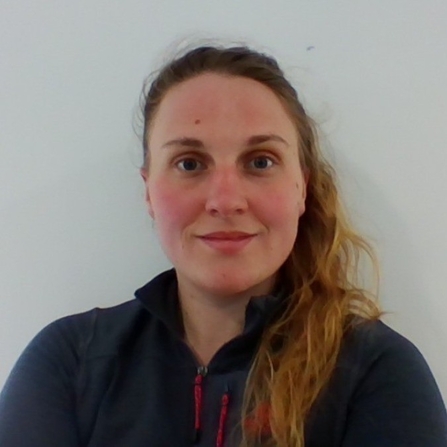
Alice Parker
Background: Alice is originally from the other side of the Solway Firth in Galloway and began the internship shortly after finishing her degree in Environmental Science and Sustainability at Glasgow University, where she completed a placement with Natural Power. Prior to the internship, she volunteered with NatureScot supporting the teams at Creag Meagaidh and Beinn Eighe Nature Reserves, as well as volunteering with her local RNLI crew.
Individual project: Alice was heavily involved in the ongoing seagrass restoration project in the Walney Channel, and conducted a feasibility study on analysing water quality within seagrass meadows. Her report covered the practical considerations of various sample collection methods, a background review on coastal water quality analyses and nutrient impacts on seagrass, as well as providing useful insights and recommendations for future assessments of water quality in intertidal seagrass meadows.
Collaborative projects: Alice and Ellena's joint project built on the work of previous interns, Flo and Adam, investigating kittiwake nesting behaviour on offshore artificial structures for a second year. They surveyed some colonies for the first time and provided insights into the health and safety implications of these kittiwake colonies, finding differences in nest and kittiwake numbers between colonies on different structures . They deliberated the potential causes of these differences, to better understand how different factors influence where kittiwakes choose to nest.
Alice and Ellena were involved with community engagement and community interactions with the coast throughout their internship. They led a rockpooling event at Parton beach, assisted with marine festivals and events, and gave a talk on Wildlife of the Irish Sea to the Keswick Natural History Society, sharing their knowledge of the Irish Sea with the general public.
- Kittiwake nesting report 2024 (https://www.livingseasnw.org.uk/sites/default/files/2025-03/Breeding%20Behaviour%20and%20Health%20%26%20Safety%20Implications%20of%20Kittiwakes%20Nesting%20on%20Offshore%20Substations%20Surrounding%20Walney%20Two%20Wind%20Farm.pdf)
- Water quality assessment feasibility report (https://www.livingseasnw.org.uk/sites/default/files/2025-03/Seagrass%20water%20quality%20report%20draft%20final_NW%20MFI%202024%20Alice%20Parker.pdf)
- Alice & Ellena's blog (https://www.livingseasnw.org.uk/blog/livings-seas-north-west/marine-futures-interns-2024-blog)
Ellena (2024)
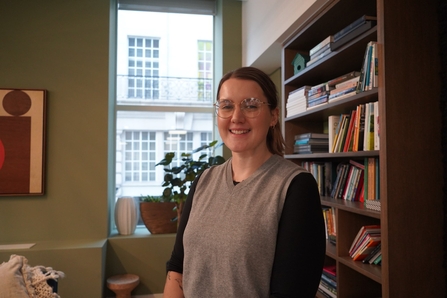
Background: Ellena is from the Morecambe area and studied Marine Biology at Bangor University. Afterwards, and prior to the internship, she volunteered with The Bay: a Blueprint for Recovery in Morecambe for about a year and really enjoy engaging local people with the amazing marine environment that can be found in the area.
Collaborative projects: Ellena and Alice's joint project built on the work of previous interns, Flo and Adam, investigating kittiwake nesting behaviour on offshore artificial structures for a second year. They surveyed some colonies for the first time and provided insights into the health and safety implications of these kittiwake colonies, finding differences in nest and kittiwake numbers between colonies on different structures . They deliberated the potential causes of these differences, to better understand how different factors influence where kittiwakes choose to nest.
Ellena and Alice were involved with community engagement and community interactions with the coast throughout their internship. They led a rockpooling event at Parton beach, assisted with marine festivals and events, and gave a talk on Wildlife of the Irish Sea to the Keswick Natural History Society, sharing their knowledge of the Irish Sea with the general public.
Individual project: Ellena researched the feasibility of tagging the South Walney grey seal colony, to understand how they interact with the nearby windfarms. She considered scientific justification and the seasonal and practical restrictions of tagging, balanced with alternative methods, to evaluate the best option for better understanding the impact of the wind farms on the colony.
Alongside this feasibility study, Ellena surveyed visitors to South Walney Nature Reserve to evaluate the current signage and whether it is effective in protecting the seal colony from disturbance.
- Seal tagging feasibility report (https://www.livingseasnw.org.uk/sites/default/files/2025-03/Seal%20Tagging%20Feasibility%20MFI%202024%20Final.pdf)
- Kittiwake nesting report 2024 (https://www.livingseasnw.org.uk/sites/default/files/2025-03/Breeding%20Behaviour%20and%20Health%20%26%20Safety%20Implications%20of%20Kittiwakes%20Nesting%20on%20Offshore%20Substations%20Surrounding%20Walney%20Two%20Wind%20Farm.pdf)
- Alice & Ellena's blog (https://www.livingseasnw.org.uk/blog/livings-seas-north-west/marine-futures-interns-2024-blog)
Adam (2023)
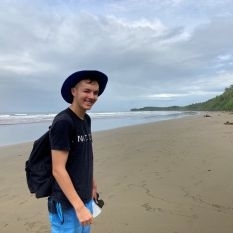
Background: Adam studied BSc Marine Biology at Newcastle University and has worked in a variety of sectors from retail to healthcare. His dissertation focused on heavy metal concentrations in deep-sea fish, highlighting his keen interest in protecting the marine environment that he has held since he watched Blue Planet as a child. Aside from the ocean, he has keen interests in wild swimming, scuba diving, playing football and drumming.
Collaborative Project: Adam and Flo's joint project investigated kittiwake nesting behaviour on offshore substations. Kittiwakes have been experiencing a period of steep decline since the 1970s, and the effects of offshore wind developments on breeding populations are unknown. Within the last couple of years, Kittiwakes have been observed colonising the offshore substation at the Walney wind farm in south Cumbria, providing a unique opportunity to carry out research and monitoring into kittiwake populations on artificial nest sites. Their final report provided valuable information about kittiwakes' nesting behaviour on offshore structures, and made recommendations for mitigation, compensation, net gain and enhancement measures.
Individual projects: Adam led on a seagrass mapping project, surveying and recording the extent and condition of the seagrass bed at Roosecote Sands and investigating potential local pressures. Adam also worked on the Cumbrian Creel project that assessed the long-term feasibility of using creels to fish for langoustine in West of Walney Marine Conservation Zone. He also worked on a project reviewing The Crown Estate's biodiversity monitoring strategies.
- Kittiwake nesting behaviour report (https://www.livingseasnw.org.uk/sites/default/files/2024-01/Kittiwake%20Nesting%20Behaviour%20on%20Walney%20Two%20Offshore%20Substation%20-%20Data%20and%20Recommendations.pdf)
- Cumbrian Creel economic feasibility and monitoring report (https://www.livingseasnw.org.uk/sites/default/files/2024-01/Cumbrian%20Creel%20Project%202023-%20Economic%20Feasibility%20and%20Monitoring.pdf)
- Seagrass surveys 2023 (https://www.livingseasnw.org.uk/sites/default/files/2024-01/Seagrass%20Surveys%202023-%20Extent%2C%20Coverage%20and%20Condition.pdf)
Flo (2023)
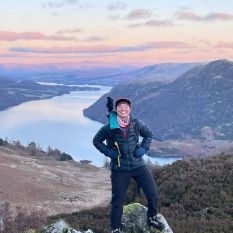
Background: Whilst studying marine biology at Plymouth University Flo specialised in animal behaviour and worked on wildlife documentary shoots, sharing their love for the marine environment through film. After spending some time sailing and working on boats during the pandemic, Flo continued to follow their passion for science communication and started working as a graphic designer and illustrator. In the meantime, they kept in touch with their love of ocean wild life by getting their commercial dive licence.
Collaborative Project: Adam and Flo's joint project investigated kittiwake nesting behaviour on offshore substations. Kittiwakes have been experiencing a period of steep decline since the 1970s, and the effects of offshore wind developments on breeding populations are unknown. Within the last couple of years, Kittiwakes have been observed colonising the offshore substation at the Walney wind farm in south Cumbria, providing a unique opportunity to carry out research and monitoring into kittiwake populations on artificial nest sites. Their final report provided valuable information about kittiwakes' nesting behaviour on offshore structures, and made recommendations for mitigation, compensation, net gain and enhancement measures.
Individual Projects: Flo’s individual projects focused on marine communication and engagement. They provided content for the Marine Data Exchange, an online open resource run by The Crown Estate that provides world leading data and evidence from the offshore marine industry. Flo was involved with a number of other projects, including stakeholder engagement for capture usage and storage (CCUS) to seagrass mapping and local community engagement events.
Following the internship, Flo has accepted a job with The Crown Estate as an Insights Advisor. They love to connect with others interested in their work and projects, so do get in touch if that is the case.
- Kitiwake nesting behaviour report (https://www.livingseasnw.org.uk/sites/default/files/2024-01/Kittiwake%20Nesting%20Behaviour%20on%20Walney%20Two%20Offshore%20Substation%20-%20Data%20and%20Recommendations.pdf)
- Seagrass surveys 2023 (https://www.livingseasnw.org.uk/sites/default/files/2024-01/Seagrass%20Surveys%202023-%20Extent%2C%20Coverage%20and%20Condition.pdf)
Amber (2022)
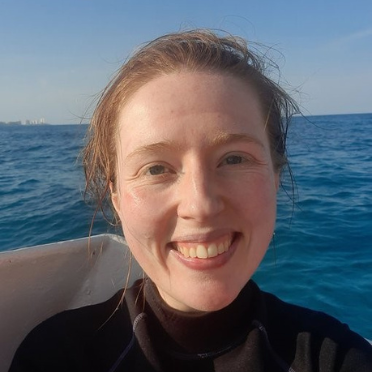
Background: Amber has a BSc in Biological Sciences and an MRes in Ocean Sciences, and focused on marine biology and conservation in both degrees . After spending time working in a hospital over the pandemic keeping patients in touch with their loved ones, they worked for an open-access journal with the aim of making research accessible to everyone. Whilst working, they kept in touch with the marine environment by volunteering for the Hampshire and Isle of Wight Trust as a Marine Champion, as well as volunteering with the University of Portsmouth to help establish the first native oyster hatchery in the UK, as part of efforts to re-establish native oyster populations and reefs in the Solent.
Collaborative projects: Amber and Tom's joint project focused on Marine Net Gain, an emerging policy that aims to improve marine biodiversity through marine developments. As the policy is still in development, Amber and Tom are used data and information from each of the partners to construct several hypothetical "case studies" of marine developments, using these to test the Marine Net Gain policy and metric and identify and suggest solutions to the issues that arise.
Individual projects: Amber's individual projects were focused on marine restoration projects. Firstly, they surveyed the state of the seagrass meadow within the Ravenglass Estuary. Additionally, they researched and discussed the feasibility of Zostera noltii restoration via seed collection in the Walney Channel. Finally, they compiled information on coastal and marine restoration projects in the UK into a freely available map layer, as a resource for both restoration project planners and potential funders.
Following the internship, Amber continued to work for Cumbria Wildlife Trust on a number of marine and coastal engagement projects and is now a Marine Officer, focusing on seagrass restoration, public engagement and citizen science activities.
- Marine Net Gain report (https://www.livingseasnw.org.uk/sites/default/files/2023-01/Marine%20Net%20Gain%20A%20Proof-of-Concept%20Assessment%20of%20Experimental%20Metric%20Calculations%20and%20Approaches%20Utilising%20Walney%20Extension%20Wind%20Farm%20as%20a%20Case%20Study.pdf)
- Dwarf Eelgrass in the Ravenglass Estuary (https://www.livingseasnw.org.uk/sites/default/files/2023-01/Distribution%2C%20Extent%20and%20Condition%20of%20Zostera%20noltii%20in%20the%20Ravenglass%20Estuary%2C%20Cumbria%2C%20UK.pdf)
- Dwarf Eelgrass seed bank in Morecambe Bay (https://www.livingseasnw.org.uk/sites/default/files/2023-01/Distribution%2C%20Extent%2C%20Condition%20and%20Potential%20Seed%20Bank%20Use%20of%20Zostera%20noltii%20Beds%20at%20Roa%20Island%2C%20Cumbria%2C%20UK_0.pdf)
Tom (2022)
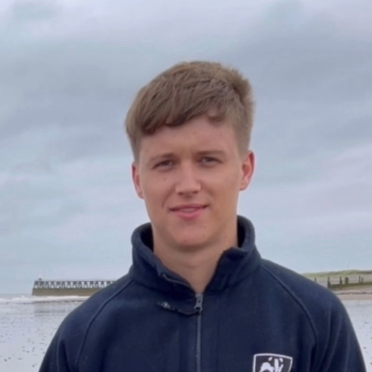
Background: Tom studied BSc Marine Geography with a year in industry at Sharklab Malta. This combined with his dissertation based on Pinniped interactions with an offshore windfarm cemented his passion to work in protecting the marine environment. His interests are film photography (claiming to have taken the first film photo of the endangered bull ray), playing bass in a band and scuba diving.
Collaborative projects: Amber and Tom's joint project focused on Marine Net Gain, an emerging policy that aims to improve marine biodiversity through marine developments. As the policy is still in development, Amber and Tom are used data and information from each of the partners to construct several hypothetical "case studies" of marine developments, using these to test the Marine Net Gain policy and metric and identify and suggest solutions to the issues that arise.
Individual projects: Tom worked on projects around environmental mitigation and evidence gaps related to offshore wind. He supported the Offshore Wind Evidence and Change (OWEC) programme team to measure impact of the OWEC projects. He also supported Orsted with Hornsea 3 on the Marine Noise Data registry and wrote a report discussing the feasibility of a Biodiversity Credit Market for the marine environment.
- Biodiversity Credit Market Feasibility report (https://www.livingseasnw.org.uk/sites/default/files/2023-01/Biodiversity%20Credit%20Market%20Feasibility.pdf)
- Marine Net Gain report (https://www.livingseasnw.org.uk/sites/default/files/2023-01/Marine%20Net%20Gain%20A%20Proof-of-Concept%20Assessment%20of%20Experimental%20Metric%20Calculations%20and%20Approaches%20Utilising%20Walney%20Extension%20Wind%20Farm%20as%20a%20Case%20Study.pdf)
Harry (2021)
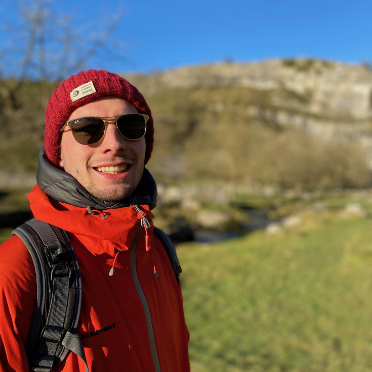
Background: Harry studied Civil and Coastal Engineering at the University of Plymouth and undertook a year in industry where he worked as a civil engineer at Heathrow Airport. In his final year he focused on renewable energy and undertook a community tidal power feasibility study.
Independent research project: Harry worked on the initial stages of a data pilot project with The Crown Estate. There are vast amounts of environmental data in the marine environment that have the potential to be applied to further studies. The project explored the barriers to sharing marine environmental data, and the potential for these data to feed into wider reports.
Collaborative research project: The main collaborative research project Harry and Beth undertook involved investigating the potential for increasing biodiversity at UK offshore wind farms through nature inclusive design. The project outlined potential target species in the UK, and feasible nature inclusive design methods that could be deployed to benefit them. Through hosting a virtual webinar and having discussions with partner organisations, the benefits and caveats associated with nature inclusive design were highlighted and the stance of each project partner was reported on.
Seagrass monitoring at Snab Sands - A project with Natural England and Cumbria Wildlife Trust, aiming to improve our evidence of the current location and status of the seagrass beds in Morecambe Bay. Beth and Harry planned and delivered surveys of the intertidal seagrass beds at Snab Sands, Walney Island. The main outcome for this project was a report and GIS map detailing the presence, extent and condition of the seagrass beds.
Next steps: On finishing his internship, Harry secured the position of Environment and Consents Specialist at Ørsted.
Beth (2021)
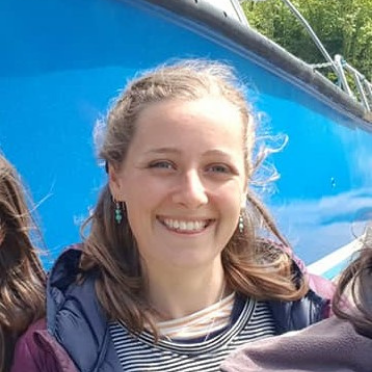
Background: after graduating in MBiolSci Biology, Beth worked as a Postgraduate Research Assistant, expanding on her master’s research project looking at marine functional diversity in Scotland’s MPA network. She then became a Living Seas Volunteer with Cardigan Bay Marine Wildlife Centre where she was involved in marine mammal monitoring surveys and community engagement events. Between volunteering and job applications, Beth worked at climbing walls, running kids’ sessions and helping to organise events.
Independent research project: Throughout the internship, Beth got involved with writing HMPA site proposals, creating a beach litter activity pack, writing magazine articles, helping with seal monitoring, writing an introduction for a ‘fisheries in offshore wind farms’ background document and assisting with community engagement events including running a strandline detectives’ event during SeaFest.
Collaborative research project: The main collaborative research project Harry and Beth undertook involved investigating the potential for increasing biodiversity at UK offshore wind farms through nature inclusive design. The project outlined potential target species in the UK, and feasible nature inclusive design methods that could be deployed to benefit them. Through hosting a virtual webinar and having discussions with partner organisations, the benefits and caveats associated with nature inclusive design were highlighted and the stance of each project partner was reported on.
Seagrass monitoring at Snab Sands - A project with Natural England and Cumbria Wildlife Trust, aiming to improve our evidence of the current location and status of the seagrass beds in Morecambe Bay. Beth and Harry planned and delivered surveys of the intertidal seagrass beds at Snab Sands, Walney Island. The main outcome for this project was a report and GIS map detailing the presence, extent and condition of the seagrass beds.
Next steps: On finishing her internship, Beth secured the position of Marine Officer with the North West Wildlife Trusts.
Daniele (2020/2021)
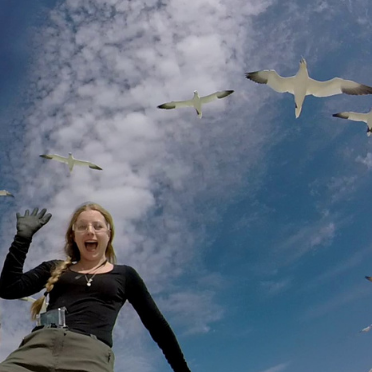
Background: After graduating in BSc Environmental Science, Daniele worked as a research assistant, undertaking DNA analysis and assisting with fieldwork at a biological research institute in Spain. She volunteered with Sea Watch Foundation and Shropshire Wildlife Trust before moving to Alderney to manage a marine Ramsar site as the Ramsar Officer at Alderney Wildlife Trust. Leading the Ramsar Programme, she was involved in everything from liaising with government and stakeholders, coordinating and conducting ecological monitoring, research and management projects, and raising environmental awareness via events, boat tours, publications and media interviews.
Independent research project: Daniele is working on a seagrass restoration study, investigating the current and historic extent of seagrass in Morecambe Bay and different restoration methodologies. She also contributes to public outreach via social media and webinars, inspiring people about the amazing species in the Irish Sea and local conservation projects, and environmental monitoring, undertaking seal surveys at South Walney.
Collaborative projects: Daniele and Lucy have worked together on the following collaborative projects with Ørsted and Natural England:
- Cormorant Roosting at Offshore Wind Farms: An inter-disciplinary project investigating cormorant’s use of an offshore wind farm co-located with a Special Protection Area, conflicts with the wind farm operations and maintenance activities and possible novel solutions to reduce these. The project is running for 6 months, and involves working with Ørsted’s Operations & Maintenance team, interviews with site technicians, conservation, policy and ornithology experts, literature research, GIS analysis, and solution design.
- Improving Communication and Understanding on Decision-making Processes in Marine License Applications: A cross-cutting project between Ørsted and Natural England, mapping the decision-making processes for marine licence applications for wind farm operations and maintenance activities, to demystify processes, and improve communication and efficiency between the organisations. The project is running for 3 months and includes discussions with stakeholders within each organisation, reviewing guidance documents, and creating a summary report and webinar.
- Fishing for Litter: A project collaborating with Ørsted’s Stakeholder Management Team to design and initiate Fishing for Litter projects on the north west and north east coasts. These projects will provide fishers with facilities at key harbours to appropriately dispose of marine litter caught while fishing. A key outcome of this project is not only the collection of litter, but empowering local communities to champion the reduction of litter entering the marine environment, and promote the positive impact that the fishing industry can have. The interns are supporting Ørsted with the project’s planning and initiation stages, facilitating collaboration opportunities, contributing to initial research, and preparing the project for successful delivery in 2021.
Next steps: On finishing her internship, Daniele secured the position of Marine Conservation Officer for The Wildlife Trusts
- Cormorants roosting report 1 (https://www.livingseasnw.org.uk/sites/default/files/2022-02/Cormorant%20Roosting%20at%20BBW01-%20Report%201_LM_DC.pdf)
- Cormorants roosting report 2 (https://www.livingseasnw.org.uk/sites/default/files/2022-02/Cormorant%20Roosting%20at%20BBW01-%20Report%202_LM_DC.pdf)
- Seagrass feasibility study (https://www.livingseasnw.org.uk/sites/default/files/2022-02/Report%20-%20Seagrass%20Restoration%20Project%20-%20Marine%20Futures%20v1%20PDF.pdf)
Lou (2020/2021)
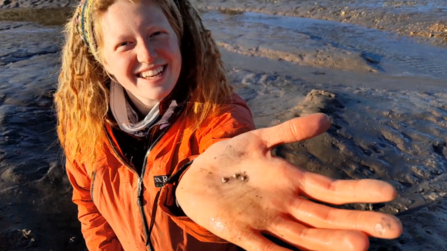
Background: Lou studied Mechanical Engineering, with a focus on sustainability and renewable energy. Prior to the internship, they worked in engineering design and project management. They are also a qualified Mountain Leader and have spent many years working with groups of young people to explore the natural environment and build their connections with wildlife through adventure sport.
Independent research project: Lou worked on a variety of mini-projects throughout their internship, such as creating educational videos, magazine articles, and infographics about the wonderful range of marine life in the Irish Sea, running community engagement events such as webinars and virtual beachcombing, and investigating the impacts of offshore wind farms on biodiversity in benthic ecosystems using The Crown Estate’s Marine Data Exchange.
Collaborative projects: Daniele and Lou have worked together on the following collaborative projects with Ørsted and Natural England:
- Cormorant Roosting at Offshore Wind Farms: An inter-disciplinary project investigating cormorant’s use of an offshore wind farm co-located with a Special Protection Area, conflicts with the wind farm operations and maintenance activities and possible novel solutions to reduce these. The project is running for 6 months, and involves working with Ørsted’s Operations & Maintenance team, interviews with site technicians, conservation, policy and ornithology experts, literature research, GIS analysis, and solution design.
- Improving Communication and Understanding on Decision-making Processes in Marine License Applications: A cross-cutting project between Ørsted and Natural England, mapping the decision-making processes for marine licence applications for wind farm operations and maintenance activities, to demystify processes, and improve communication and efficiency between the organisations. The project is running for 3 months and includes discussions with stakeholders within each organisation, reviewing guidance documents, and creating a summary report and webinar.
- Fishing for Litter: A project collaborating with Ørsted’s Stakeholder Management Team to design and initiate Fishing for Litter projects on the north west and north east coasts. These projects will provide fishers with facilities at key harbours to appropriately dispose of marine litter caught while fishing. A key outcome of this project is not only the collection of litter, but empowering local communities to champion the reduction of litter entering the marine environment, and promote the positive impact that the fishing industry can have. The interns are supporting Ørsted with the project’s planning and initiation stages, facilitating collaboration opportunities, contributing to initial research, and preparing the project for successful delivery in 2021.
Lou is passionate about education and engagement and was particularly excited to use their skills and enthusiasm to support Living Seas North West in developing both community and cross-industry understanding of marine wildlife and conservation issues.
Next steps: After finishing their internship, Lou secured the position of My Local Catch Project Officer for Cumbria Wildlife Trust.
- Cormorants roosting report 1 (https://www.livingseasnw.org.uk/sites/default/files/2022-02/Cormorant%20Roosting%20at%20BBW01-%20Report%201_LM_DC.pdf)
- Cormorants roosting report 2 (https://www.livingseasnw.org.uk/sites/default/files/2022-02/Cormorant%20Roosting%20at%20BBW01-%20Report%202_LM_DC.pdf)
- Benthic biodiversity in OSW (https://www.livingseasnw.org.uk/sites/default/files/2022-02/Benthic%20Biodiversity%20in%20OWFs.pdf)
Lydia (2019)
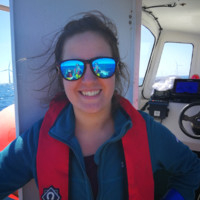
Background: BSc in Marine Biology and MSc in Marine Environmental Protection from Bangor University. Lydia also had prior experience as a course coordinator for MARINElife.
Research project: Assessing the feasibility of a Nephrops creel fishery: In West of Walney Marine Conservation Zone
Research project summary: The research project looked at creel fishing for Nephrops within Walney 2 wind farm off the Barrow-in-Furness coastline. It found that creel fishery for Nephrops is feasible, sustainable, allows degraded habitats to recover and can coexist with both wind farms and Marine Conservation Zones (MCZ).
West of Walney MCZ was designated to balance the needs of multiple users and is the perfect example of how wind farms, MCZs and fisherman can all co-exist in the same area.
Next steps: On finishing her internship, Lydia secured the position of Marine Lead Advisor for Natural England
"Marine Futures has been an incredible "stepping stone" in my career, allowing me to combine my background in engineering and outdoor education, and apply it in a completely new context for marine conservation! The internship has taught me an enormous variety of skills, including species ID and ecological survey methods, marketing and content creation, events management, and working with partners and volunteers, to name a few!"My Local Catch Project Officer, Cumbria Wildlife Trust
